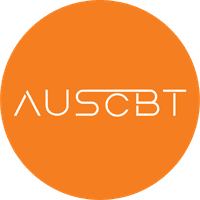
How do I become a Payroll Officer in Hobart?
Get qualified to work as a Payroll Officer with a course recognised across Australia. Speak to a training provider to learn more.
Course providers in Hobart
The following providers offer Payroll Officer courses in Hobart, Tasmania.




















Common questions
In Australia, a full time Payroll Officer generally earns $1,600 per week ($83,200 annual salary) before tax. This is a median figure for full-time employees and should be considered a guide only. As you gain more experience can you expect a higher salary than people who are new to the role.
 Courses.com.au Team
Courses.com.au Team
There are currently 40,000 Payroll Officers employed in Australia right now and this job role grew very strongly over the last 5 years. Payroll Officers work in all industries and employment sectors — from small business through to large corporations.
Source: Australian Government Labour Market Insights
 Courses.com.au Team
Courses.com.au Team
Payroll Officers need a strong understanding of industry awards, ATO and Fair Work requirements. The Certificate IV in Bookkeeping and Accounting (taking the payroll specialisation) is the minimum qualification. We also suggest the Diploma of Payroll Services.
 Courses.com.au Team
Courses.com.au Team
Related career opportunities
Browse occupations related to Payroll Officer
Further reading


What can you do with a Certificate IV in Accounting and Bookkeeping?
18th August 2020
Career Spotlight: Accounting and Taxation Professionals
9th October 2019All payroll officer courses
- BSB40120 Certificate IV in Business (Finance)
- PSP50512 Diploma of Government (Financial Services)
- FNS51820 Diploma of Financial Services
- FNS40615 Certificate IV in Accounting
- FNSACC412 Prepare Operational Budgets
- Undergraduate Certificate in Accounting
- FNS40222 & FNS50222 Certificate IV in Accounting and Bookkeeping & Diploma of Accounting
- FNSSS00012 Payroll Administrator Skill Set
- FNS50222 Diploma of Accounting
- FNSTPB412 Establish and Maintain Payroll Systems
- FNS50417 Diploma of Payroll Services
- FNS40611 Certificate IV in Accounting
- FNS41820 Certificate IV in Financial Services
- FNS50215 Diploma of Accounting
- BSB50618 Diploma of Human Resources Management
- BSB40120 Certificate IV in Business (Financial Administration)
- FNS51815 Diploma of Financial Services
- BSBHRM416 Process Payroll
- FNSSS00004 BAS Agent Registration Skill Set
- BSB41013 Certificate IV in Human Resources
- BSBFIN401 Report on Financial Activity
- BSB41015 Certificate IV in Human Resources
- FNS50217 Diploma of Accounting
- FNS40217 Certificate IV in Accounting and Bookkeeping
- FNS50422 Diploma of Payroll Services
- FNS51822 Diploma of Financial Services
- FNS41815 Certificate IV in Financial Services
- LGA50120 Diploma of Local Government (Corporate Services)
- FNS40920 Certificate IV in Superannuation
- BSBFIN301 Process Financial Transactions
Payroll Officer careers
If you’re looking to kickstart your career in payroll, there are plenty of fantastic options available with payroll officer courses in Hobart. Whether you are new to the field or seeking to advance your skills, the diverse range of courses offered is designed to cater to all levels of expertise. Beginners can take advantage of tailored courses such as the Process Payroll BSBHRM416 and the Payroll Administrator Skill Set FNSSS00012. These foundational courses provide essential knowledge and practical skills that will set you on the path to success.
For those experienced in the field, the payroll officer courses in Hobart also offer advanced training to further enhance your qualifications. Consider enrolling in the Diploma of Payroll Services FNS50422 or the Diploma of Accounting FNS50222, which are ideal for stepping into more complex roles with increased responsibility. With expert guidance from reputable training providers in the Hobart area, you’ll gain the confidence and capabilities necessary to elevate your career.
The unique advantage of studying locally in Hobart is the opportunity to learn from industry professionals who understand the specific requirements of the payroll sector within the region. Courses like the Establish and Maintain Payroll Systems FNSTPB412 and the Report on Financial Activity BSBFIN401 not only provide essential payroll skills but also focus on the local industry context, ensuring that you are well-prepared for the job market.
Embarking on a training journey does not have to be daunting. With 15 payroll officer courses in Hobart to choose from, support is readily available to guide you through your studies. Take the first step today by exploring beginner and advanced options such as the Complete Business Activity and Instalment Activity Statements FNSTPB411 and the Certificate IV in Business (Financial Administration) BSB40120. Embrace the opportunity to grow professionally by enrolling in one of these rewarding courses! For more details, visit the full listings of Payroll Officer courses in Hobart.
